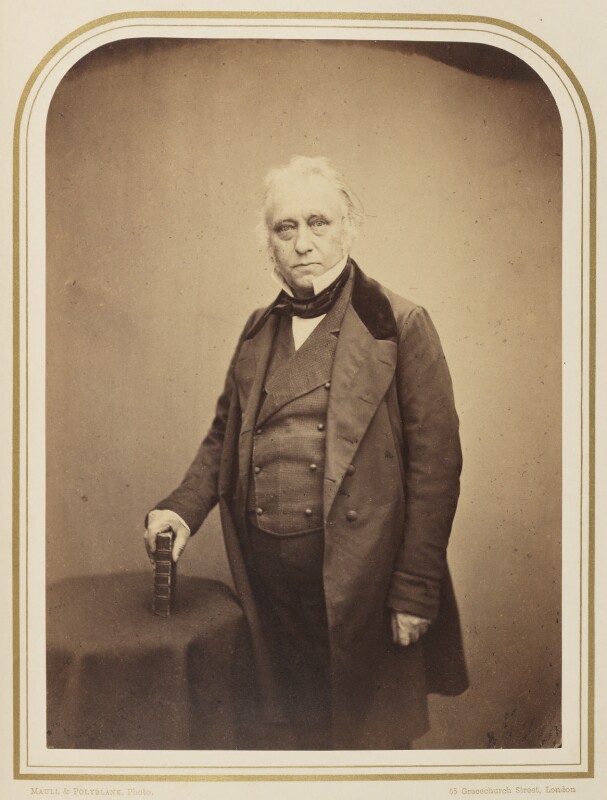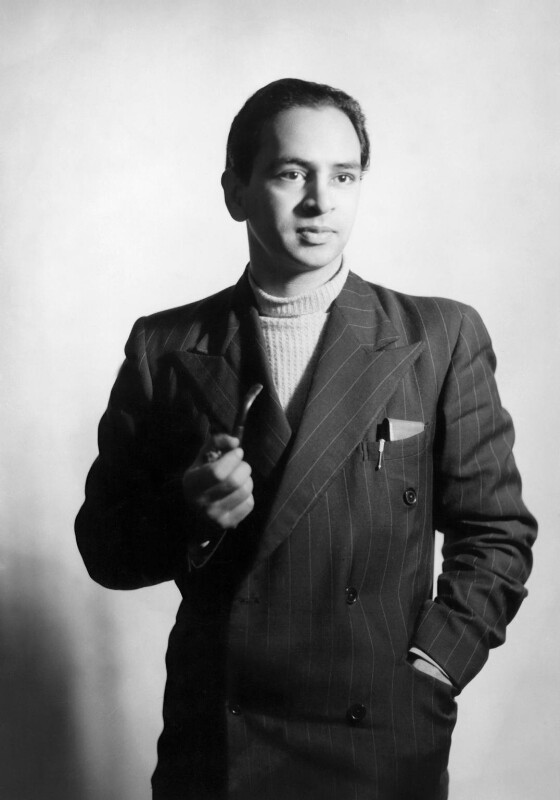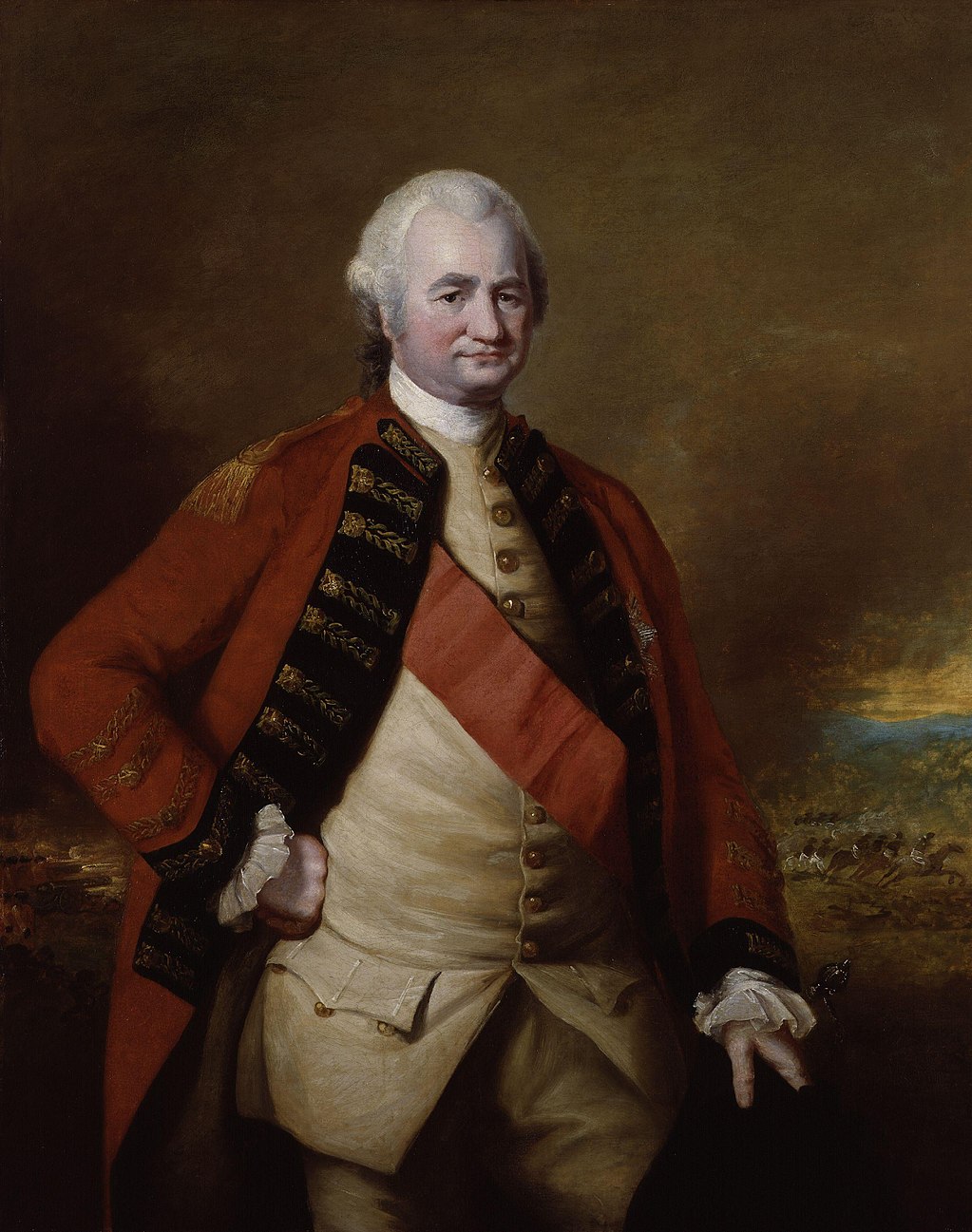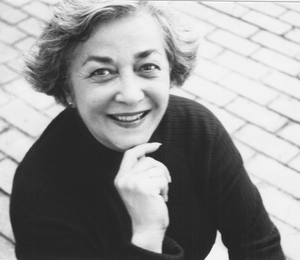
Shahrnush Parsipur. Image via PEN America.
This post was originally published on May 24, 2017.
Women Without Men was written in the immediate aftermath of the 1979 revolution and published in 1989. The author, Shahrnush Parsipur, was arrested and jailed on two separate occasions after its publication for her frank discussion of the question of female chastity and her forthright depictions of women’s struggles with their own sexuality (she was also imprisoned for several months during the Shah’s regime and for four years in the early 80s). The book has since been banned in Iran.
Women Without Men is staged against the backdrop of the 1953 coup, which is never directly cited, but alluded to in three chapters of the novella, two by date, and in the last through references to the commotion in the streets and the subsequent calm. It is with this allusion to the suspension of the rule of law that the novella’s main characters, each escaping the houses that bind them, find their way to a new home in a garden in Karaj, a city situated at the base of the Alborz mountains. The echoed upheaval in the home and homeland is followed by a stabilization of social order that merely reconfigures, re-inscribes, and conserves the laws to which the subjects of the novella are subjected.
It should be noted that these references to the ’53 coup seem rather misplaced in the context of the novella. The story centers on constraints on women’s mobility—an issue which strikes at the heart of the ’79 revolution when despite women’s large-scale participation in the revolution, women in fact lost many of the rights they received under the Pahlavi regime and were faced with more restrictions in terms of both physical and social mobility [1]. It seems clear that the reference in the novella to the coup is a metalepsis for the revolution, one which explicitly connects them and does so with regard to the issue of women’s mobility in particular.

The cover of an English translation of Shahrnush Parisupur’s Women Without Men (Syracuse UP, 1998)
The first part of the novella establishes the ubiquity of the laws that guide female mobility. These laws, while their foundation or justification remains specifically unspoken in the text, weigh universally upon each of the female characters—they are, as women, met with an expectation of passivity, the transgressions thereof is met with the force of law—either in the form of a punishment doled out by a man who is their ‘rightful’ guardian, or through the withdrawal of protection. The space of difference—what remains beyond the law, as it were—is the space of desire which marks each character’s unique relationship to the patriarchal order dictating the limits of her mobility according to sexual and marital status. Ultimately, the novella seems to argue, there is no liberation in politics, but there is something beyond its confines.
Mahdokht, Faizeh, and Munis are all unwed virgins and thus are bound strictly by the social laws that limit their movement in order to preserve the purity of the female body until marriage. They are bound to the familial home, under the protection of a male guardian, only to preserve their chastity until marriage and as such they are temporary lodgers within the domicile. Though they are subject to the legislators of the home, that legislation is itself bound to the overarching social laws mandating feminine purity—they are bound strictly to the private realm and have no place within the public, social order. On the other hand, Farrokhlaqa and Zarrinkolah, no longer virgins, are bound not by the law of preservation, but are the rightful property of the men in their lives and subject entirely to their will and whim, the former to her husband and the latter to her pimp. Though through (social and physical) intercourse, they have a potential proxy-relationship to public order, their public face remains the prerogative of the men to whom they are given as property, and the possibility of escape is limited to a transfer of ownership—to another husband or pimp.
Against the backdrop of the coup, each character’s fate is transformed through a mirroring of the chaos and each finds herself in a revolutionary or tumultuous space. While the common thread among each of the five characters is that they are controlled by limits imposed from without, they diverge with regard to how they mobilize with and against the terms of their particular forms of subjection, and their fates are ultimately tied to ways they negotiate the laws from which they cannot escape.
Mahdokht
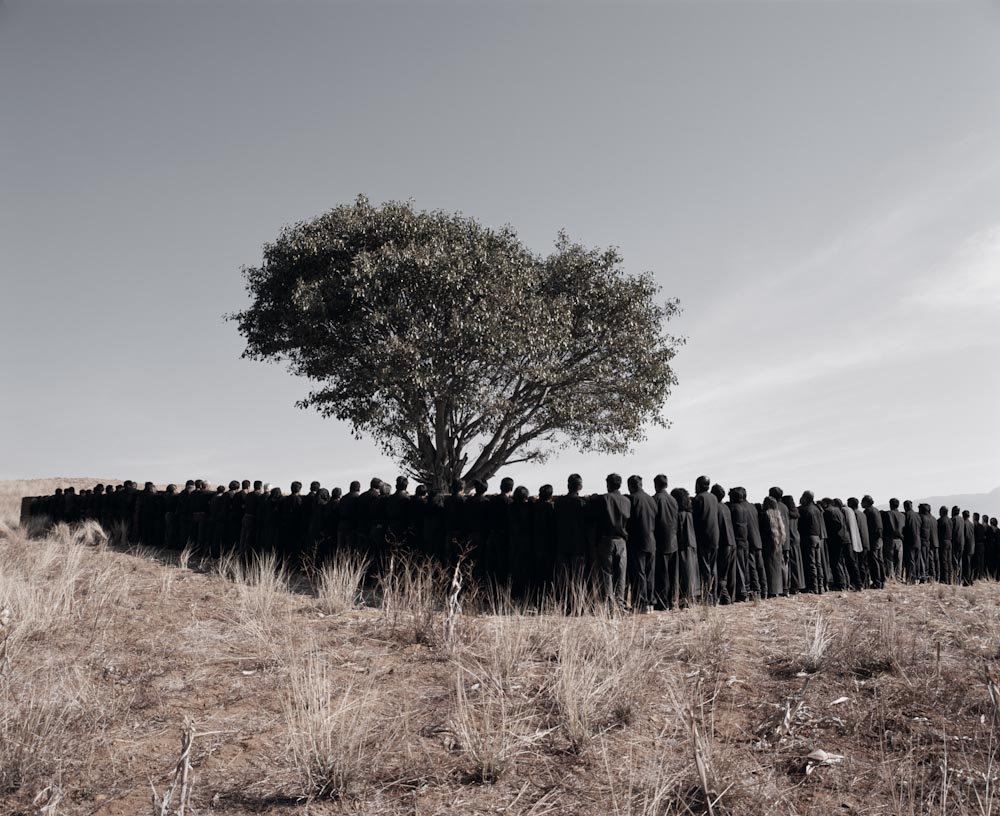
Shirin Neshat, Tooba Series (2002)
The novella opens in a garden in Karaj. The reader is introduced to Mahdokht who is described as a simple woman who cannot tolerate violence and is saddened even by the conflict between the light green reflection of the willows and the dark green of the pool in the garden. In every way, Mahdokht’s range of movement is limited to reaction and obedience. She lives in fear of the very possibility of transgression and adheres strictly to the letter of the law of the home and homeland, and in her exact obedience thereto she both despises and wills her immobility.
Mahdokht moves to the garden to live with her older brother’s family at his request after she quits her job as a teacher because the principal of the school, Mr. Ehteshami, asks her for a date. In response to the internal conflict she suffers from not knowing how to react to his insolence in thinking her that kind of a women and worried about what the other teachers might have assumed about her relationship with him, she leaves the school as a symbolic act of her incontestable chastity. The reader is told that when she later learns of his marriage to a history teacher at the school, she suffers the pangs of an aching heart, suggesting that she rebuffs his advance not because she lacks interest in him, but because her virginity cannot be reconciled with her desires. Significantly, upon learning about Mr. Ehteshami’s marriage, she thinks to herself: “[t]he problem is that dear father has left a lot of money” (Parsipur 4). This suggests that lacking in financial necessity, she can see nothing else that would enable her, a woman of virtue, to welcome the advances of a man without ipso facto making of her the harlot she wishes never to be.
Mahdokht is defined by her utter passivity. The single moment of mobility that is described with regard to Mahdokht, quitting her job and moving in with her brother’s family, is described in terms of her inaction and obedience: in response to the principal’s advance “Mahdokht didn’t go to school” (3) and she moves because “[s]he had been forced to accept her older brother Hoshang’s invitation to come to the garden and endure the noise of the children” (2). Ironically, even her otherwise active decision to flee the advance is done because it compromises the passivity of her chastity.
In short, Mahdokht does what she is told by the legislators of her life. She moves to a garden in Karaj because she feels compelled by her brother’s invitation. She fantasizes about having a thousand hands with which to knit five-hundred sweaters every week to clothe the orphans of her country, a desire which coheres perfectly to the government’s occasional announcements “on the radio or on television that something must be done about the orphans” (Parsipur 5). When she wants to stop knitting altogether, even her desire to do so is predicated by the fantasy that the government announcement has been obviated—that the government can build a factory to knit sweaters. One day, recalling that “[y]ears ago [her former boss] had said that breathing the humid air of the greenhouse during the day was the best thing you could do, because all the flowers produce oxygen” Mahdokht heads to the greenhouse despite the fact that all the plants had been taken out and placed in the garden (6). In short, Mahdokht follows the strict letter of the law even when its spirit does not obtain.
In the greenhouse Mahdokht witnesses sexual intercourse between an adult gardener and a fifteen-year old girl who lives under the supervision of Mahdokht’s brother. Though it is never explicitly stated whether what she witnesses is a rape or a tryst, much of the language of the section—not to mention the age of the girl—establishes this act as a rape. What is significant is that neither the age of the girl nor violence inflicted on her affects Mahdokht’s reaction to what she witnesses—to Mahdokht, the girl is guilty of an indiscretion. Regardless of the circumstances, in the simple terms of obedience to the law which defines Mahdokht as a character, the girl’s body has been defiled and she has transgressed the bounds of feminine social existence. Interestingly, she seems not the least revolted by the gardener’s participation in the event. For Mahdokht, the law is the ultimate authority.
In these ways, Mahdokht is the literal embodiment of obedience to the laws that define and limit female mobility—she is her virginity. In response to the defilement of the girl, she thinks “[m]y virginity is like a tree….I’m a tree. I must plant myself” (Parsipur 10). Like Ovid’s Daphne [2], she wishes to become a tree which cannot be defiled by the advances of men, to become the tree of Eden (Tooba) from which no fruit can to be touched by Man, against which God warns Adam from approaching lest he run into harm and transgression (Surah 2:35). This desire to plant herself into the garden as a tree in many ways runs counter to other desires she has for mobility, and Mahdokht desires to escape the confines of her home-body-virginity and, paradoxically, does so by willing her immobility—by confining herself exclusively and literally to the private domain. And this act is a rare and ironic moment of agency—her personal revolution is to actively will her immobility by literally planting herself into her brother’s garden.
Faizeh

Pegah Ferydoni as Faezeh in Shirin Neshat’s 2009 film adaptation of Women Without Men, which is only loosely based on Parsipur’s novella
In every way, Faizeh has prepared herself to be perfectly marriageable: she cooks, she throws dinner parties, and she counters her sister-in-law’s accusations of her lack of virtue by wanting to get a certificate of virginity from her doctor. In contraposition to Mahdokht, Faizeh is a character who is transgressively mobile. The reader is introduced to Faizeh as she easily leaves the confines of her house in the midst of the chaos of the coup and enters the disordered streets “to go and defend her rights” (13). The rights to which she refers turn out not to have anything to do with the political upheaval around her—Faizeh heads to the house of her friend, Munis, hoping to run into Munis’ brother, Amir, whom she is hoping will take her in marriage. Twenty-eight years old and still unwed, she reasons it her right to venture out in the midst of chaos in order to secure the dictated role of a wife. Faizeh’s relationship to the law is consequentialist in nature: her contravention of laws is in service of the very laws she transgresses. Taking the naturalness of the law of feminine chastity for granted, she justifies all other means to reach the legislated end of a proper marriage. Her defiance is but a maneuvering to obtain the appropriate outcome for a woman of her age; and her entrée into public space is merely provisional—a means to securing her own domestic domain.
When later in the story Amir kills his sister, Munis, because he thinks she has dishonored the family, it is Faizeh who quickly realizes that her active intervention can potentially seal her desired fate. In order to ensure that she achieves the status of his wife, she draws upon the patriarchal laws to ease him of his guilt, ignoring the fact that he has killed her best friend in the world: “You’re a man! You can’t cry. What are you crying for? You’re a brother, you upheld your family’s honor. You killed her? You did the right thing. Why not? A girl who disappears for a month is as good as dead” (Parsipur 37). This becomes an exercise in irony since not only does Faizeh continuously transgress the bounds of female mobility, but she eventually does so for more than month. Yet, in this moment, she naturalizes and justifies the punishment inflicted on Munis for her transgression of that limit. She also reminds him that the rule of law has not been fully restored and that they can easily bury and hide the body: “Many people disappear and the detectives are busy. No one is going to come to your house to ask about her” (38). Thus, instead of the alluded coup merely mirroring her personal revolution, she seizes on what Jacques Derrida characterizes as the “ungraspable revolutionary instant” (41) to exploit the space created by the lack of public order to secure her entrée into the realm of matrimony. Interestingly, it is again her active attempts to help Amir in his crisis—squatting down to comfort him, taking out a handkerchief from between her breasts, and holding and caressing his hand in the car—that disgust him and convince him of her unsuitability as a wife. Her active attempts to secure a “normal” social existence, her unabashed mobility, is that which prevents her marriage to Amir, for he is a man that desires a woman who knows her place and thinks Faizeh to have the kind of boldness which he equates with a lack of virtue in a woman. Thus we learn that Faizeh’s attempts at reaching the dictated and lawful end through transgressive means are continuously frustrated.
Mrs. Farrokhlaqa Sadraldivan Golchehreh

Arita Shahrzad as Fakhri in Neshat’s film adaptation of Women Without Men
Mrs. Farrokhlaqa Sadraldivan Golchehreh is a fifty-one-year-old woman who has been married unhappily for thirty-two years. She is the only character in the text with a surname, showing that she is the only one to have arrived at her “permanent” identity — the last name of her husband. In the logic of the novella, as a married woman she is no longer constrained by the general laws of virginity, but by the specific laws of her familial bond to her husband and it is through her husband that she has secured a provisional public existence. The nom du père provides her with identity as a subject—it provides her with a public existence—but the range of her movement remains dictated by her husband. Throughout the story, she is rendered immobile under the watchful eye of her jealous and malicious spouse.
And every day his wife waited patiently for him to go so that she could feel energetic and move about freely. Whenever he was in the house, she would lose her ability to move, and she would hide in the corner. She had a thirty-two-year-old habit of not moving. She had gotten used to immobility. She knew only this, and she knew it instinctively, that when Golchehreh went out, mobility and happiness would come to her. (Parsipur 56)
While he keeps her under surveillance in the mirror as he draws out activities such as tying his tie or shaving his beard, criticizes her clothes and friends, or mocks the onset of menopause, she finds movement only through her memories and through fantasies of a life that could have been with another man of her past. This other man, for Farrokhlaqa, is the instantiation of that which could have freed her from her stationary life with her husband. It is significant that her fantasies circulate around social norms, that Farrokhlaqa’s fantasies allow her no other avenue but from the house of one man to the house of another.
Farrokhlaqa’s fate is transformed through an act of violence she perpetuates on her husband: fearing a suspicious and sudden turn to kindness on his part, Farrokhlaqa punches him in the stomach and he falls down the stairs. In this way, she becomes a widow: without having to shed her surname, she becomes free of both the gaze and the will of her husband without having to take on the gaze and the will of another. As a married woman who is no longer bound by the social laws that limit women’s movement in order to preserve the purity of the female body, she gains the freedom to decide her own fate once the master of the house has died and his fortune has become hers. She had entered public space through marriage, but was bound to the home through the law of her husband. Freed from the law through his death, she can now become its agent.
Zarrinkolah
Zarrinkolah is a twenty-six-year-old prostitute who has lived in a brothel since childhood. Like Farrokhlaqa she is bound to the will of the man of the house, in her case, a pimp. Like Farrokhlaqa, the possibility of flight via a marriage was thwarted with the death of the man in question. However, unlike Farrokhlaqa, Zarrinkolah lacks a surname and a proper marriage, and as such her life is necessarily precarious and her freedom will not be won through an inheritance through death. She has entered the public realm through her sexual experience, but because she is a prostitute, her relationship to the law is one of transgression and, as such, she can never become its agent. Zarrinkolah is described as an amiable and much-loved member of the brothel, whose intentions to leave are thwarted by the other prostitutes. The reader is told that these intentions are never quite genuine: “Zarrinkolah never really intended to leave, for if she left the house, she would have to go straight to another house” (72). Though as a prostitute she is the personification of transgression, as a woman she is inescapably bound to a house. Thus, though she has no relationship to the laws of chastity the laws limiting women’s public movement still very much obtain.
What ultimately forces her to leave the confines of the brothel is a personal, but unwilled, transformation—she wakes up one day to find that she sees all of her customers, in fact all men, without heads. Though this is a state that overcomes her, to which she is subject as a character, it nonetheless presents a revolutionary moment—the guardians of the law lose all identity and become nothing but bodies, leaving her to seek out a form of life without the violence of men who have always ruled over hers. Convinced that this is a result of her sinfulness, she escapes the brothel to find absolution. Yet she does not believe herself to have the normal recourse to prayer to undo her fate. She enters a local bath and orders “the bath worker to scrub her three times. The bath worker scrubbed until Zarrinkolah’s skin was raw. But she wasn’t satisfied that she was clean enough to pray” (75). She performs ablutions fifty times to rid her of the sexual pollution, and repeats the name of Ali because she does not know how to pray. She speaks not the name of the law because she is beyond its idiom. When she goes to the shrine of Shah Abdulazim to pray she does not dare enter. Zarrinkolah is a prostitute and thus stands outside of the normal laws that guide social intercourse; as a figure of transgression, she cannot enter the house of the Law.
Munis

Shabnam Tolouei as Munis in Neshat’s film adaptation of Women Without Men
“I can’t stay home any longer” Munis declares in the middle of Women Without Men, “but because I am a woman, I must stay home somewhere. I can make a little progress, then get stuck in a house, then go a little further, and get stuck in another house” (99). In many ways, Munis is the heroine of the novella and this statement encapsulates the central crux of the narrative. The status of her body, her internal strife, life, and deaths perfectly mirror the alluded to upheaval of the homeland. In midst of the chaos of the coup, she learns from Faizeh something that subverts the very foundation of the beliefs that had hitherto guided her existence. Hers is revolution in knowledge:
Munis thought about how for thirty-eight years she had been looking out the window at the little garden, assuming that virginity was a curtain. When she was eight years old, they had told her that God would never forgive a girl who lost her virginity. Now it had been three days and two nights since she found out that virginity is a hole, not a curtain. Something inside of her had broken. She was filled with a cold rage. She recalled how, when she was a child, she used to gaze longingly at trees, wishing that just once she could climb one. But she never had, out of fear for her virginity. (29-30) [3]
Frustrated by how much of her life had been spent in fear of endangering a virginity that turns out not to be a curtain, Munis dies by falling off the roof of her house (whether this was an “accident” or a “suicide” is never made clear). She awakes from this first death and this fantastic awakening echoes the end of the ruling political order—she leaves the house to which she has been confined and enters the public realm of men. She spends the next month wondering through the streets alone, looking on at the chaos of the coup and the return to ordinary life. She goes to bookstores around the city, and on the thirteenth day she gathers the courage to purchase a book entitled, The Secret of Sexual Satisfaction or How to Know Our Bodies. She spends three days reading and re-reading the book: “The trees and sunshine and streets all had new meanings for her. She had grown up” (33). Certain that this knowledge of her body—her revolution—has transformed the old order, she returns home only to find that though virginity is not the curtain she had believed it to be, the laws of chastity had not been overturned. Assuming that her prolonged absence is proof of her physical corruption, her brother, Amir, beats her and stabs her in the heart. It is in this way that Munis experiences her second death, from which she wakes, as living-dead, weeks later.
Munis is the only character in the novella that actively questions and resists the foundation of the patriarchal logic that dictates women’s lives. She actively seeks what Derrida describes in his essay as the “mystical foundation of the authority of laws” (12). She questions the logic of mandated feminine chastity, displays no desire for marriage or family, and is not moved by memories of what could have been or the social ambitions of what could be. In contesting the very basis of her subjection, she has no possible role within the society around her. She is neither a wife nor a prostitute, seeks neither path, thus her sojourn into the public realm cannot be tolerated within a world structured explicitly by the laws of chastity. Thus, the logic of the novella ensures that Munis cannot exist in the world in which she lives and her fantastical re-emergence into the world of the living in death is the way this impossibility is negotiated—she is a character that can only venture forward in death. Having entered the social realm without adopting any sanctioned role, she can only remain there as a ghost.
Munis awakens from her second death, the honor killing by Amir, with the power to read minds coupled with a new self-assurance and forthrightness. In death, Munis is no longer bound by the ordinary limits of knowledge nor is she restrained in articulating her views. She even expresses a desire to found an organization that will prevent other honor killings, thus signaling the ways in which death has allowed her to enter the public realm from which she had been forbidden in life. Eventually, Munis and Faizeh head to Karaj to start their new life: “We’re going to Karaj to reap the benefits of our toil and get rid of the men who control us” (78).
The Period of Transition
It is with these words that Parsipur’s characters embark upon their respective journeys to escape the men that control them. On the road to this new life, Munis and Faizeh are brutally raped. In fact, the men that do so attribute the rape to the presence in the public space without male guardians, implictly revealing that what happens to women who are where they don’t belong is ultimately made to be the responsibility of the women themselves and not that of their male aggressors. Munis explains that the escape from the prison of family life, the transgression of the laws that limit female mobility, is not without risk:
…I was thinking of going to India and China to see the world. I want to comprehend everything, and not just sit around and let other people tell me what’s what and make an ass of me for the rest of my life. They say that ignorance is bliss. But I’ve decided to take a risk and seek knowledge. Of course it’s dangerous to walk along the road. Either you’re strong enough to face the danger, or you’re not, and you return like a lamb to the flock. Maybe when you go back, they’ll act like you have the mange and shun you. There are only two possibilities: either you endure the shunning or you don’t, and you kill yourself. (96)
She recognizes that to forge a new path to greater freedom, a woman faces the dangers and brutality of the world—that, indeed, a woman cannot hope to travel beyond her allotted place without being rendered vulnerable to the brutality of the patriarchal order and its regimes of discipline. Munis in death-life has the sight: She sees that though the laws that guide female mobility may be without foundation, their transgression is always bound with a price. In the novella, the brutal rape of Munis and Faizeh is the violence which results when the security of the male guardian is withdrawn, a reminder of the precariousness of female life in the patriarchal order. Transgression of the dictated norms is met with the force of law, even as in this case in the withdrawal of its protections. More broadly, the rape marks the violence that can result from the vulnerability that comes from any act of resistance. Munis notes that “with this rape, I have taken the first step toward discovering some logical order. This is the first bitter experience of traveling. On the way I thought about how millions of people drowned so that the first person could learn to swim. The amazing thing is that people still drown” (97). Munis thus argues that the path of resistance is always fraught and dangerous—that while resistance is inevitably violent, dangerous, difficult, and exceptionally slow, it is the very condition of possibility of a mobility denied by the law of subjection.
The Utopia That Never Was
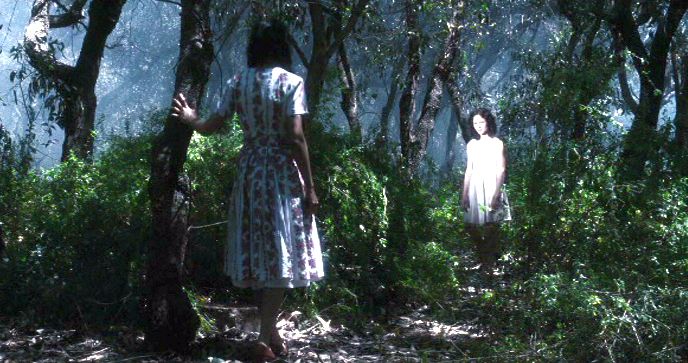
Pegah Ferydoni as Faezeh and Orsolya Tóth as Zarrin meet in the garden Neshat’s 2009 film adaptation of Women Without Men
After the rape, Munis and Faizeh converge with the rest of the characters at the garden in Karaj in which Mahdokht has planted herself and which is purchased by Farrokhlaqa after her husband’s death. Farrokhlaqa allows the women to move in with her, build a house in the garden, and to help run it. There is but one man in all the garden, who refers to himself only as the good gardener, who is the only one who knows how to do construction work.[4] Farrokhlaqa does not work but merely gives orders while the others perform the labor. She is the legislator of the garden. Immediately we see that the new society is very much ordered along the lines of the old. Though the figure may have changed, the women are nonetheless entirely beholden to a guardian. The guardian is now Farrokhlaqa, the property owner as proxy-male authority.
As the sole legislator of the garden, it is Farrokhlaqa’s vision of what the garden is to become that ultimately counts. Her desire for the garden is to use it to form a literary salon and upon finding the marvel of a woman planted in the ground, she decides she could use the publicity of this strange event to achieve that aim, and ultimately, to become a government official or a representative. According to the text, “[s]he waited impatiently for the work to get finished so that she could invite important men to the house” (103). Farrokhlaqa’s public ambitions still depend on those that hold the key to public life—and thus she is not only drawing upon the logic of the world beyond the society they have created, but her ambition for the garden is but a stepping stone in a project of securing power and prestige.
Farrokhlaqa decides to publish poetry so she can become famous enough to begin her new public role, but finds herself unable to write a proper poem, instead producing childish poetic drivel which is mocked by all who read it. In attempting to strictly obey the laws of meter and rhyme, she constructs a poem that is otherwise nonsensical. Her poetry, like the society which she oversees, is still tethered to a logic beyond itself. Indeed, it is only a simulacrum of the order which the garden was intended to purify. While within it, Farrokhlaqa rules and is ruled by the emulation of the logic of order outside of the garden and her express desires remain beyond it. She seeks social mobility well beyond what is afforded by the garden and having failed at poetry, she decides to pursue fame by becoming a model for a painter. As a woman she can only secure public fame—enter the symbolic and social order of the world beyond the garden—by becoming a subject (of a man’s painting; of society’s laws).
The text reveals the full irony of the mythic project of purification by showing that though Farrokhlaqa may be the owner of the estate and the overall legislator, she is very much dependent on the gardener: “[s]he needed the gardener so much that she had to do everything he said” (105). The gardener may be no legislator, but he is the one with the know-how to bring this experimental society of women into fruition. Thus we see that at its basis, the garden both draws upon and replicates the structure of the society from which the women are fleeing and relies on a masculinist logic that cannot be undone simply by virtue of the gender homogeneity of its residents. The sanctuary, it is subtly revealed to us, is always both sanctuary and a space of confinement, a promise but never a guarantee, a temporary reprieve or exemption from the law, but never a challenge to it.
Significantly, it is not only Farrokhlaqa who has desires which exceed the possibilities of the purified utopia. The reader learns that the garden does not meet the needs of all the women because they have desires beyond the one the garden attempts to meet. Their desire to escape the laws that limit female mobility is but one aspect of who they are, and no garden can meet all of their respective needs. The garden which was to become a new society purged of all the influences from without shows itself to be a myth—the women bring with them their histories and struggles, carry with them the traces of the order they try to escape. Structural change, the novella seems to argue, is always haunted by the specters of history, culture, tradition, and an indelible multiplicity of desires which make of the utopian project always a false promise. There is no promise, no synthesized justice, to be found purified of the violence which is its enabling condition. The utopia is but a mirror image of the violence through which it is envisaged—and the promise of justice remains an always “to come,” a perpetual longing, the project of resistance, but never a reality that has arrived. In this way, Parsipur seems to blend the classical Persian literary image of the garden as paradise and as beauty [5] and cultivation, and create of the garden a symbol of a paradise left to wither from a lack of cultivation. The garden, thus, becomes re-imagined as the process and not the site.
Interestingly, the garden holds eudemonic possibilities for only those women who are no longer subject to the law—a fact that is allowed for through the magical realism in the novella, but which is nonetheless tied to the characters that entirely eschew the possibility of redemption in the public realm [6]. Zarrinkolah’s desire is to cleanse herself, while initially a kind of purification through self-mutilation, in the garden becomes a regime of self care and cultivation through love, and this purely private journey of self discovery is something that the garden allows her the space to undertake. She marries the gardener with no name, and despite Faizeh’s protestations, the gardener refuses the presence of a mullah to conduct the ceremony and declares that he will do it himself. In this way, Zarrinkolah, the figure of transgression, becomes a partner without the witness of the representative of the law, without becoming subject to the law. Zarrinkolah is blissful in her new life, and her bliss is entirely private. She has overturned no social order nor forged a path for those that follow, but has found, through a purely private practice and care, reprieve from the ubiquity of the laws guiding female life. Hers is a path that escapes the law by becoming fantastically immune to it, but it is a path that is entirely singular.
Under the care of Munis and the gardener, the Mahdokht-tree thrives. In the spring, fed by the dew of the morning and dusk, it sings songs and fills the garden with music, and in the mid-winter when she is nourished with human milk, she finally experiences the rapture of ecstasy: “She had an explosive feeling. Spring hadn’t come, but the ice on her body was breaking. She was in pain. She was filled with an explosive feeling” (121). The Mahdokht-tree bursts open slowly and eventually turns into seeds that are blown by the wind into the water and through the water to the rest of the world. Mahdokht finds deliverance by escaping the law in becoming a tree. By manifesting the logical deductions of the law that guides female mobility, her body manifests—and indeed, tears asunder—the impossible and absurd command of the law. A kind of dialectical inversion exposes this absurdity: in her absolute chastity, the Mahdokht-tree experiences the ecstasy of orgasm; by willing her immobility, she becomes mobility incarnate; in in becoming the very logic of “femininity” forced upon her, she comes becomes the masculine figuration of the seed.
For the other women, the garden is merely another site, one which facilitates the realization that a purified refuge cannot fulfill the totality of their desires. Having gained some fame through exhibitions of the paintings done of her, Farrokhlaqa sets up a winter home in Tehran. She eventually meets a man who offers to help her establish a name for herself in the public realm. They marry and he becomes a public official while she becomes the trustee of an orphanage. Ironically, she becomes a trustee by gaining a trustee. Faizeh still aspires to become Amir’s wife and works diligently to make this a reality by exploiting the fact that she has gotten to know his boss from gatherings in the garden. Ultimately, she secures herself the role of his second wife beyond the realm of the garden.
Munis does not seek merely private bliss; she merely desires to live in the world at large as an ordinary person. “The problem was that she knew everything on an intellectual level, so that she had repressed real experience out of fear of disgrace” (118). She expresses to the unnamed gardener that she wishes to become light, but he tells her that to understand light one must understand darkness. He tells her to “[s]eek darkness, seek in the darkness, in the beginning, in the depths, in the depths of the depths where you will find light at the zenith, in yourself, by yourself. That is becoming human, go and become human” (128). Throughout the story, Munis has effectively shunned, ignored, and transgressed the laws that dictate women’s lives, but her engagement with them has been entirely intellectual. She learns from Faizeh the true nature of virginity, she reads a book about sexuality, she takes in eidetic images from the thoughts of others. In the context of the novel, she has only managed to live in death. She has haunted the story, but has not injected it with her own subjectivity. In order to become human, she has to suffer the ambiguities of a mundane world filled with justice and injustice—face the force of law in subverting it, and grapple with justice as a process that never ends. Thus for Munis who resists the foundation of the law and is committed to the transformation of its inherent injustice, the garden provides not deliverance, but the hint of a possibility of living within the world while working to transform it.
The garden’s gender homogeneity cannot undo the irretrievable heterogeneity of desires of the women within it. The violence inflicted on the women in the path to the garden cannot be undone, the loss each suffers in being denied the mobility easily given to the men around them is not easily replaced, and the individual yearning and aspirations of the different subjects remain beyond the generality of the address of the law. Even the most well-intentioned structural change is haunted by the radical impossibility of that generality. Justice cannot prevail in the present because there is no law that preserves the singularity of the address.
While the novella’s emphasis on the injustices suffered by each of the main female characters clearly serves as a critique of the laws that dictate female mobility, the narrative also portrays that though the process of resistance is inevitably violent, dangerous, difficult, and exceptionally slow, it is both absolutely necessary and unavoidably encumbered with the inescapable light and dark of ordinary experience—that, indeed, there is no singular intellectualized project of resistance that omits the becoming of experience. And a becoming of experience is, by definition, indeterminate. Resistance, as such, is not law but is lawmaking, and is never in and of itself just, but is meaningful insofar as it strives to a justice which is absent in the present. Resistance is a deconstructive interrogation that addresses the problem of justice.
Thus, Parsipur’s knife cuts both ways—it remains a critique and deconstruction of the laws, the political and social structures that subjugate, and a cautionary tale against the naïve intellectualizations and false promises of a utopia, of a given horizon of expectation as a finite endpoint. Through a complex and insightful allegory, Parsipur explores the violence and the injustice of the law as experienced and perpetuated by each of the main female characters, delves into the painful and necessary process of resistance, grapples with the incommensurability of justice which betrays itself at the moment it has arrived. Thus, while Parsipur’s knife is directed at the face of the male that oppresses and, indeed, the entire logic of patriarchy that binds, we can say that it is more broadly directed at that justice that “has arrived”: that utopian promise, the other face of which is the dystopia of the law of subjection.
Notes
[1] Within weeks of securing political power, Khomeini issued a series of fatwas that left an indelible mark on the rights of women in Iran and reversed many of the gains they had made in the preceding years. He overturned the Family Protection Law of 1967, which limited men’s authority over their wives by, among other things, requiring the first wife’s written approval prior to his securing of other marriages, allowing women to work outside the home without their husband’s permission, gave women the right to petition for divorce, and raised the age of marriage for girls from 15 to 18. The Passport Act of 1972, which allowed women to leave the country without requiring their husband’s or a male guardian’s written consent, was also overturned. Khomeini banned women from being judges and demoted those who had already secured this position to clerks, and he issued an infamous decree imposing an Islamic dress code for all women in the workplace, which was quickly expanded to women’s dress everywhere.
[2] I borrow the reference from Talattof (“Breaking” 44).
[3] In her analysis of the novel, Humanities Core Faculty Lecturer Nasrin Rahimieh clarifies that the cited debate operates around the meaning of the word pardeh-e bekarat—which refers to the hymen, but literally translates into “curtain of virginity.” According to Rahimieh’s astute analysis: “[i]n the exchange between Munis and Faizeh, the concept is reduced to its literal meaning and is defamiliarized” (157).
[4] The gardener is an interesting figure in the novella. He has no proper name—a significant omission in that this seems to preclude him from having a presence in the social and symbolic order. During his tenure in the garden, the novella treats him as an irfan figure, a knower, and his interventions become key in the women’s personal development. Yet, though he does not participate, he is present when Munis and Faizeh are raped, though it is not clear whether he witnesses it or if he is the one who avenges it.
[5] I borrow the reference to the garden as cultivation and beauty in the classical period from Talattof (The Politics 58).
[6] Rahimieh makes a similar point in her reading: “the only types of release from social and cultural conventions represented in Women Without Men happens in the form of magical events” (157).
Works Cited
Derrida, Jacques. “Force of Law: The ‘Mystical Foundation of Authority’.” In Deconstruction and the Possibility of Justice. Ed., Drucilla Cornell, Michel Rosenfeld, and David Gray Carlson. New York: Routledge, 1992.
Parsipur, Nasrin. Women Without Men. Trans. Kamran Talattof and Jocelyn Sharlet. Syracuse: Syracuse UP, 1998.
Rahimieh, Nasrin. “Overcoming the Orientalist Legacy of Iranian Modernity.” Thamyris/ Intersecting No. 10, 2003. 147-63.
Talattof, Kamran. “Breaking Taboos in Iranian Women’s Literature.” World Literature Today, September-December 2004. 43-46.
———— The Politics of Writing in Iran: A History of Modern Persian Literature. Syracuse: Syracuse UP, 2000.
 Dr. Sharareh Frouzesh is a seminar leader in the Humanities Core Program at UC Irvine, where she received her PhD in Comparative Literature. Her research focuses on identity formation and the privileging of particular identities through an exploration of the concept of guilt. Her interdisciplinary work engages with 20th and 21st century Iranian and Iranian-American Literature, postcolonial Anglophone and World Literatures, as well as literary theory, political philosophy, and postcolonial, critical, psychoanalytic, and feminist theories.
Dr. Sharareh Frouzesh is a seminar leader in the Humanities Core Program at UC Irvine, where she received her PhD in Comparative Literature. Her research focuses on identity formation and the privileging of particular identities through an exploration of the concept of guilt. Her interdisciplinary work engages with 20th and 21st century Iranian and Iranian-American Literature, postcolonial Anglophone and World Literatures, as well as literary theory, political philosophy, and postcolonial, critical, psychoanalytic, and feminist theories.

















